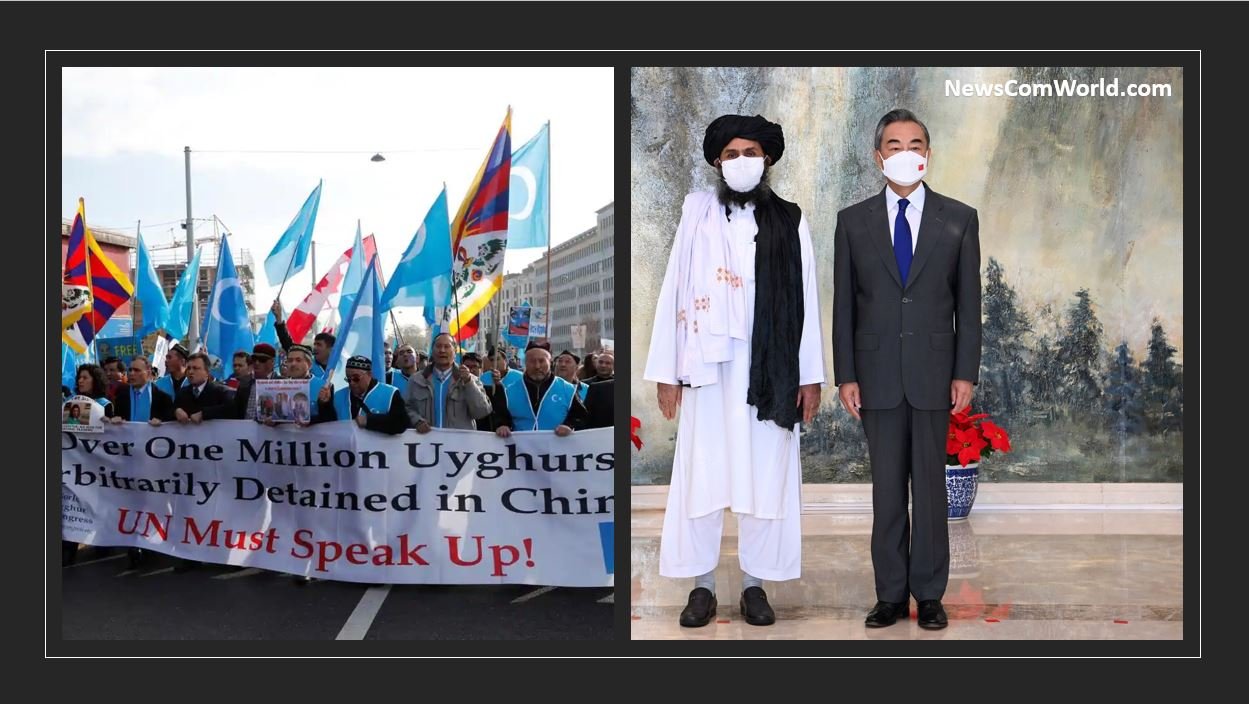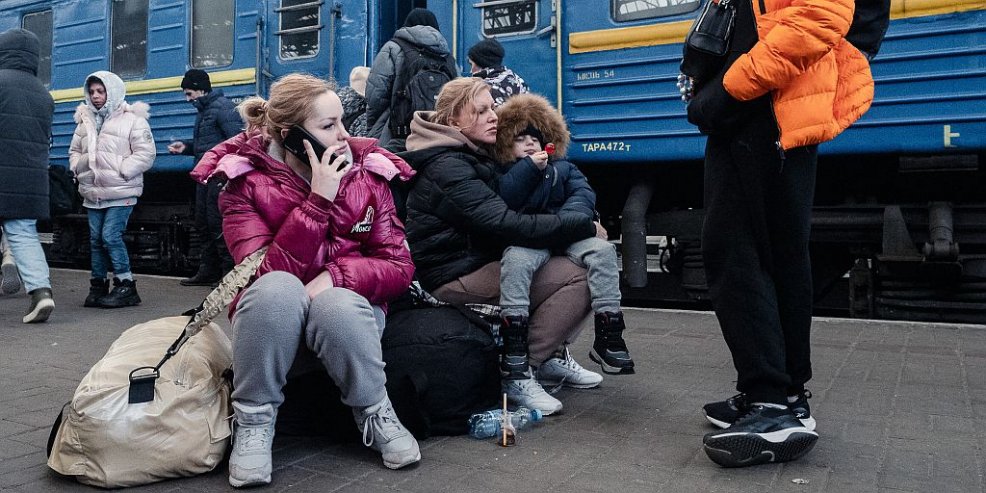Chinese Debt Trap Diplomacy is used by Imperialist China to control the world. Many countries around the world that voluntarily or involuntarily fell into the Chinese debt trap, are following dictate of Communist CCP China. We covered in details about Chinese Debt Trap Diplomacy in the Africa in our previous article Chinese Debt Trap Diplomacy – The African Modus Operandi.
In another previous article Chinese Debt Trap Diplomacy in Africa : The Case of Ghana – A Report we presented to our readers how China is exploiting natural resources and in turn destroying the Land and Water resources in an African Nation Ghana. The water on which millions of citizens on Ghana live is rendered undrinkable. Land is left uncultivatable and barren.
In this present article we present the Chinese attempt to capture Ghana’s illegal Galamsey – Gold Digging operations that is the biggest cause of large tracts of land becoming uncultivable and water resources getting polluted and water becoming undrinkable. We would recommend our readers to read the above 2 recommended articles to have a clear understanding of Chinese operations in Africa and in Ghana in particular.
Galamsey – Illegal Gold Digging in Ghana
Chinese attempts to capture the Galamsey operational model is but an example of what happens to a country when China is allowed to enter inside. Starting with illegal support from the Chinese contractors China entered the Galamsey market expanding into a powerful mafia with deep links with country’s polity and judiciary.

A Galamsey, derived from the phrase “gather them and sell”, is a local Ghanaian term which means illegal small-scale gold mining in Ghana. Galamseyers are people who perform illegal gold mining independent of mining companies, digging small working pits, tunnels, and sluices by hand. Galamsey is also referred to as Illegal Artisanal Small Scale mining (ASM). Under current Ghanaian law, it is illegal for Galamseyers to dig on land granted to mining companies as concessions or licenses. Most Galamseyers find gold in free metallic dust form or they process oxide or sulphide gold ore using liquid mercury. Many more people, including thousands from China, have been drawn into the sector. The Information Minister recently claimed there are now 200,000 people engaged in Galamsey, while other sources suggest nearly 3 million rely on it for their livelihoods.
Chinese actors have invested substantial funds into mining, introduced more sophisticated technologies, and employed significant numbers of Chinese migrant workers as well as Ghanaians. Their use of heavy machinery has increased both extraction rates and environmental damage.
In the span of only a few years, Ghana has attracted an estimated 50,000 “gold seekers” from China, almost exclusively from Shanglin County in Guangxi province. This so-called “Shanglin gang” has settled in rural regions, creating predominantly Chinese mining communities or Gangs. Across three of these key Galamsey hubs, adverts and signs are in Mandarin while televisions in Chinese restaurants show Chinese soap operas.
In the span of only a few years, Ghana has attracted an estimated 50,000 “gold seekers” from China, almost exclusively from Shanglin County in Guangxi province. This so-called “Shanglin gang” has settled in rural regions, creating predominantly Chinese mining communities or Gangs. Across three of these key Galamsey hubs, adverts and signs are in Mandarin while televisions in Chinese restaurants show Chinese soap operas.
The Chinese working community is believed to be highly organised and hierarchical, with one kingpin allegedly employing over 300 Chinese migrant workers together with a number of Ghanaians.

Many believe these communities to be hostile to locals, although recent government crackdowns appear to have encouraged co-operation. This is reflected by an increasing number of Ghanaians speaking fluent Mandarin.
Increased Crimes and illegal Arms and Narcotics brought in by Chinese
Galamsey, and the informal communities it creates, is associated with a rise in crime and violence. Police have said that the number of armed robberies has risen in illegal mining areas, often with guns brought in by the Chinese to protect themselves.
Along with the growing presence of Chinese weaponry and their Gangs, the trafficking and use of narcotics by Chinese has also increased. As per the police, a proportion of the cocaine and methamphetamine trafficked through Ghana is directed towards Galamsey miners. Chinese give a portion of drugs to their workers in order to “give them courage” and help survive long hours in dire conditions. Such drug use proliferates in informal and illegal gold mining camps in South America. As Ghana becomes a key narcotics trafficking transit state, patterns repeat themselves.

The single biggest arrest of suspected illegal miners has been effected in the Ashanti region in December 2018. 16 miners were rounded up deep inside the Kobro forest reserve believed to have huge mineral deposits. The arrest by the task-force working under the Inter-ministerial committee against illegal mining raises concerns that illegal mining is outlasting government’s resolve to deal with the menace.

The task-force retrieved 14 long butt pump action assault rifles and one rare military grade M16 assault rifle. Some of the weapons were brand new. Six new excavators were also grounded.

As profits and goods from Galamsey enter the supply chain informally, there is also a high risk that proceeds will be diverted towards other crimes.
Illegal mining also results in huge sums of lost revenue. In 2016 alone, an estimated $2.3 billion worth of gold left the shores of Ghana through Galamsey. The illicit trade avoids taxation and the prevalence of foreign actors means that profits typically flow out of the country.
A number of sources suggest that gold is mostly smuggled to China. At the same time, illegally mined gold can easily make its way into the formal supply chain. Under Ghana’s regulations, gold dealers are not required by law to guarantee that their gold is legally mined. This means that even licensed brokers buy and sell gold without regard to its origin.

The loss of revenue to the state is particularly critical as the government is struggling to fund oversight mechanisms. Reducing illicit financial flows would greatly contribute to the state’s resources and its ability to deploy much-needed development initiatives.
In 2006 and 2013, the government organised swoops on illegal gold miners. But while these raids resulted in the arrests of hundreds of Chinese miners, they only captured low-level workers who were easily replaceable and had no useful intelligence into broader operations.
In addition, the quick release of many of those detained has led to allegations of widespread police corruption. In one case in 2017, a Chinese national not only allegedly escaped from prison after being arrested, but soon had his car, which had been seized by police at the time of arrest, returned to him.
Local activists report collusion between district police and illegal miners. They suggest the police gain significant financial benefit from protecting, or turning a blind eye to, the industry. Many of the guns used by Chinese mining groups are also reportedly purchased from the police themselves.
Clamping down
These factors have led to growing clamors for the government to properly tackle Galamsey and punish those involved. The media outlet Citi FM launched a #StopGalamseyNow campaign in April 2017, while key national media houses jointly established the Media Coalition Against Galamsey.
These campaigns have thrust the issue onto the centre stage, and the government appears to be responding accordingly.
Previous administrations have been accused of tempering their resistance to Galamsey due to China’s heavy investment in the country. But the current administration seems to be avoiding this pitfall.
Following arrests of illegal miners in April 2017, Chinese officials threatened the government of Ghana to “guide the media to give an objective coverage on the illegal mining issue” and complained of “distorted or biased reports and stories on Chinese people”. Chinese officials also threatened that any casualties incurred from the arrests would be “extremely harmful to the bilateral relations”.
Following arrests of illegal miners in April 2017, Chinese officials threatened the government of Ghana to “guide the media to give an objective coverage on the illegal mining issue” and complained of “distorted or biased reports and stories on Chinese people”. Chinese officials also threatened that any casualties incurred from the arrests would be “extremely harmful to the bilateral relations”.
Rather than placating China, however, Ghana’s Information Minister responded that “the Chinese threat or whatever does not bother me at all”. Media representatives confirmed that the government has not “guided” them to temper their reports. The response suggests a shift in attitudes. We do not know if it real or if it is a theatrics public posture to fool the public to avoid public agitation.
As well as standing up more forcefully to China, the administration launched the five-year Multilateral Mining Integrated Project this March. This initiative seeks to direct small-scale miners towards areas where the presence of gold has been confirmed and where destruction caused by mining can be limited. The government also said it will use computer software to track earth-moving equipment used in the illicit activity and may consider using drones to monitor the activities of illegal gold miners.
The three-week ultimatum issued in April 2017 meanwhile led to over 500 excavators and 1,000 dredging machines being removed from illegal mining sites. This policy was also accompanied by an intense advocacy and engagement programme aimed at educating miners about the harmful effects of Galamsey.
Finally, there are indications that legal enforcement against Galamsey is on the rise too. Ghana’s Chief Justice recently designated 14 courts to hear illegal mining-related cases in a bid to expedite them. On 17 April 2017, the vice-president announced that the government has suspended the issuance of small-scale mining licenses until Galamsey is tackled.
Some recent Allegations on Ghana Government
500 seized Galamsey excavators have disappeared.
Seized gold bars, guns, pickups from Galamsey sites missing have gone missing.
Tackling Galamsey
The problem of Galamsey will be very difficult for Ghana to solve. From the centrality of actors from China, one of Ghana’s biggest trade partners; to the importance of small-scale mining in creating jobs in a country suffering from high youth unemployment; to the allegedly close relations between criminal networks and regional police; Galamsey is deeply woven into many aspects of Ghana’s current reality.
Breaking the Vicious Circle of Chinese Debt Trap to end all the vices
Tackling the problem will therefore take a range of strategies that must be pursued comprehensively and in a long-term manner. Ghana which is a cash-strapped state and has problems of endemic corruption, needs to find a way to get out of the Chinese Debt Trap.
The only way the Debt Trap can be broken is if the Europe, the US or India-Japan with their partners step in Ghana and replace China with better projects with better loan terms, the Chinese influence can be challenged.
In these difficult at times when the Chinese Virus has killed more than 648,000 innocent civilians worldwide, West needs to stand up with countries like Ghana in African Continent and encourage them to take a legal action unitedly against China.
The action against China should include forfeiting all Chinese Loans, repudiation/cancellation/rescinding of all present and future contracts with the Chinese, Seizure/nationalization of all Chinese Assets in all countries, deporting of all Chinese nationals, Suing China for more compensation. That additional compensation can be used by countries like Ghana in the water and land conservation and setting up of environment friendly development projects with the help of other countries on better loan terms.
Points to Ponder
Will the Europe, US, India-Japan, Australia and other alliance countries that are also fighting the Chinese Bio-Terrorism in this Chinese Coronavirus pandemic, be able to step-up and replace China in the African continent?
Will African nations like Ghana be able to muster enough courage to stand up against China with the help of support from the West to forfeiting all Chinese Loans, repudiation/cancellation/rescinding of all present and future contracts with the Chinese, Seizure/nationalization of all Chinese Assets in Ghana, deporting of all Chinese nationals, Suing China for more compensation?
What are the Chinese nations afraid of? In case all the Chinese loans are forfeited and all the Chinese contracts cancelled, China cannot claim any copensation. Will the west able to given enough courage and backing to all African Nations?
In case the west and all allies fail to stand up with African nations at this time, China will continue to use the votes of African nations to control all the United Nation’s bodies as we mentioned in our previous article, China has led a surprisingly effective, low-key campaign to lead mid-tier agencies at international organizations. At the United Nations, Chinese nationals now lead five of the 15 specialized agencies: the International Civil Aviation Organization, the International Telecommunication Union, the Food and Agriculture Organization, the U.N. Department for Economic and Social Affairs, and the U.N. Industrial Development Organization.
On their own, these agencies really aren’t that important but collectively they provide Beijing with an increasingly influential platform to align the international agenda with their own priorities.
But none of it would have been possible without Africa’s support.
Twitter Handle: @newscomworld
Instagram Handle: @newscomworld
Parler Handle: @newscommuniquecom
Subscribe our : YouTube Channel https://www.youtube.com/channel/UCnKJQ3gFsRVWpvdjnntQoAA
Like our Facebook Page https://m.facebook.com/News-Communiquecom-103788531007438/
3,223 total views








